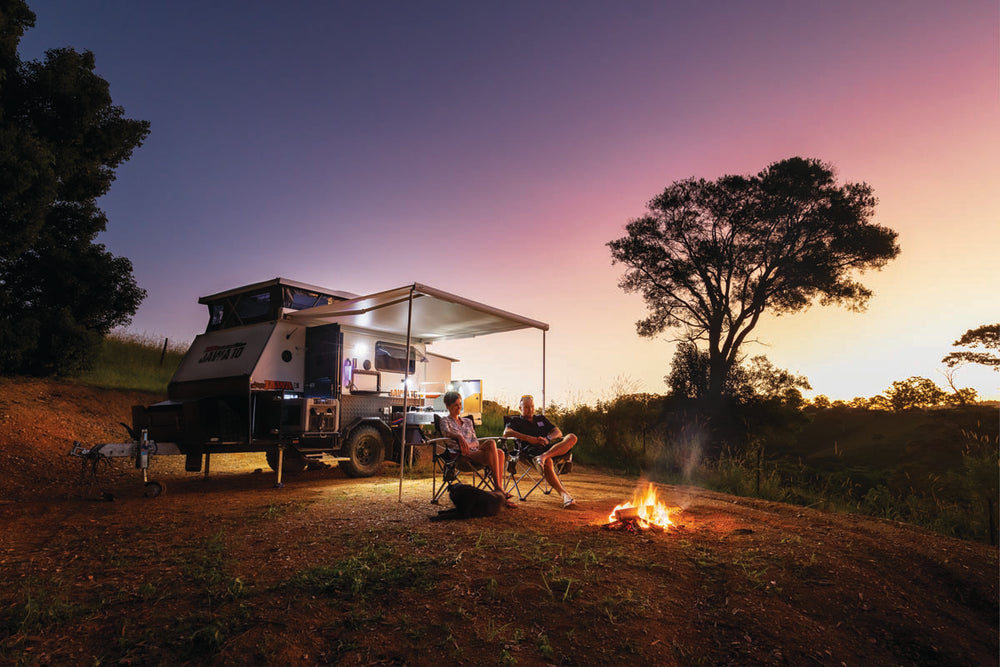Back to caravan road safety basics with Ken from Truck Friendly
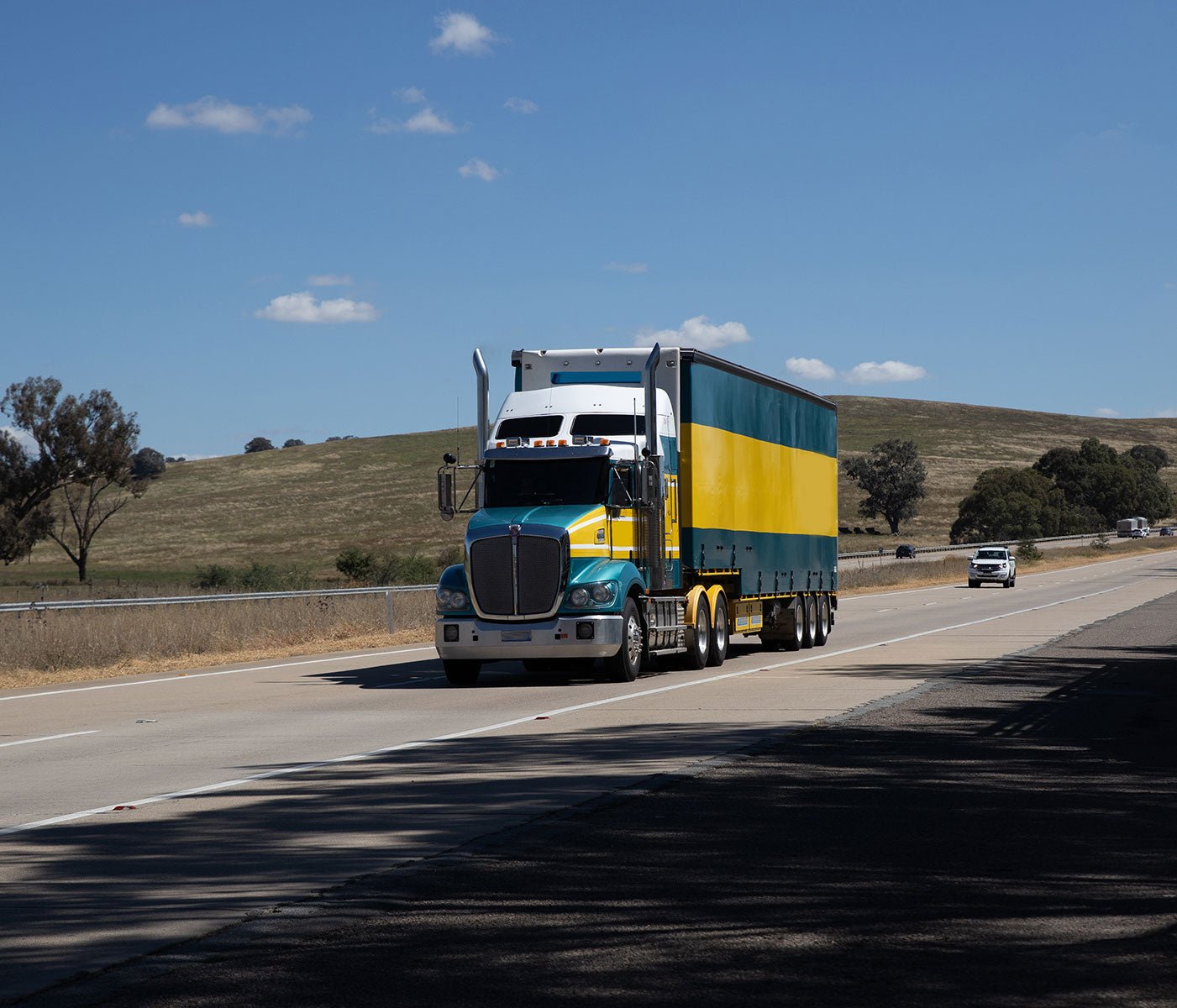
Bundaberg-based caravan road safety researcher, Ken Wilson, started the Truck Friendly national caravan road safety program in 2016 and says incorrect weight distribution and overloading is still the biggest issue on our roads.
In 2022 Queensland police conducted a weigh-in blitz on the remote 1049km section of the Landsborough Highway in western Queensland, between Morven and Cloncurry.
Mobile scales were deployed to weigh caravans and other heavy combinations and revealed that a staggering nine out of 10 travellers — 90 per cent — were towing dangerously overweight caravan combinations. More disturbingly, most drivers were unaware their car and caravan combination was overweight, dangerous and illegal.
This frightening statistic doesn’t surprise Bundaberg-based caravan road safety researcher Ken Wilson from Truck Friendly, but it still makes him shudder and, he says, it needs urgent attention. Ken believes that incorrect weight distribution and overloading is one of the major causes of caravan instability and legal non-compliance on the roads in Australia today.
Truck Friendly is a national caravan road safety program designed to encourage road safety education, cooperation and a friendlier and supportive relationship between all road users including caravanners, RV drivers and the truck drivers on highways and suburban roads.
“Australia has many experienced caravanners who share great advice to those new to caravanning,” says Ken. “However, there are also many social media sites, caravan park drink gatherings and well-meaning friends who relay uneducated, dangerous and sometimes illegal advice in answer to questions."
“It is very hard for people new to caravanning to know what or who to believe when they are setting up a tow vehicle and towing a caravan. Even some of the caravan industry companies and associations provide ‘suspect information’ on their sites, and mainstream media which does nothing more than confuse the new caravanner. Where is the reliable source of information that new caravanners can rely on?”
Truck Friendly
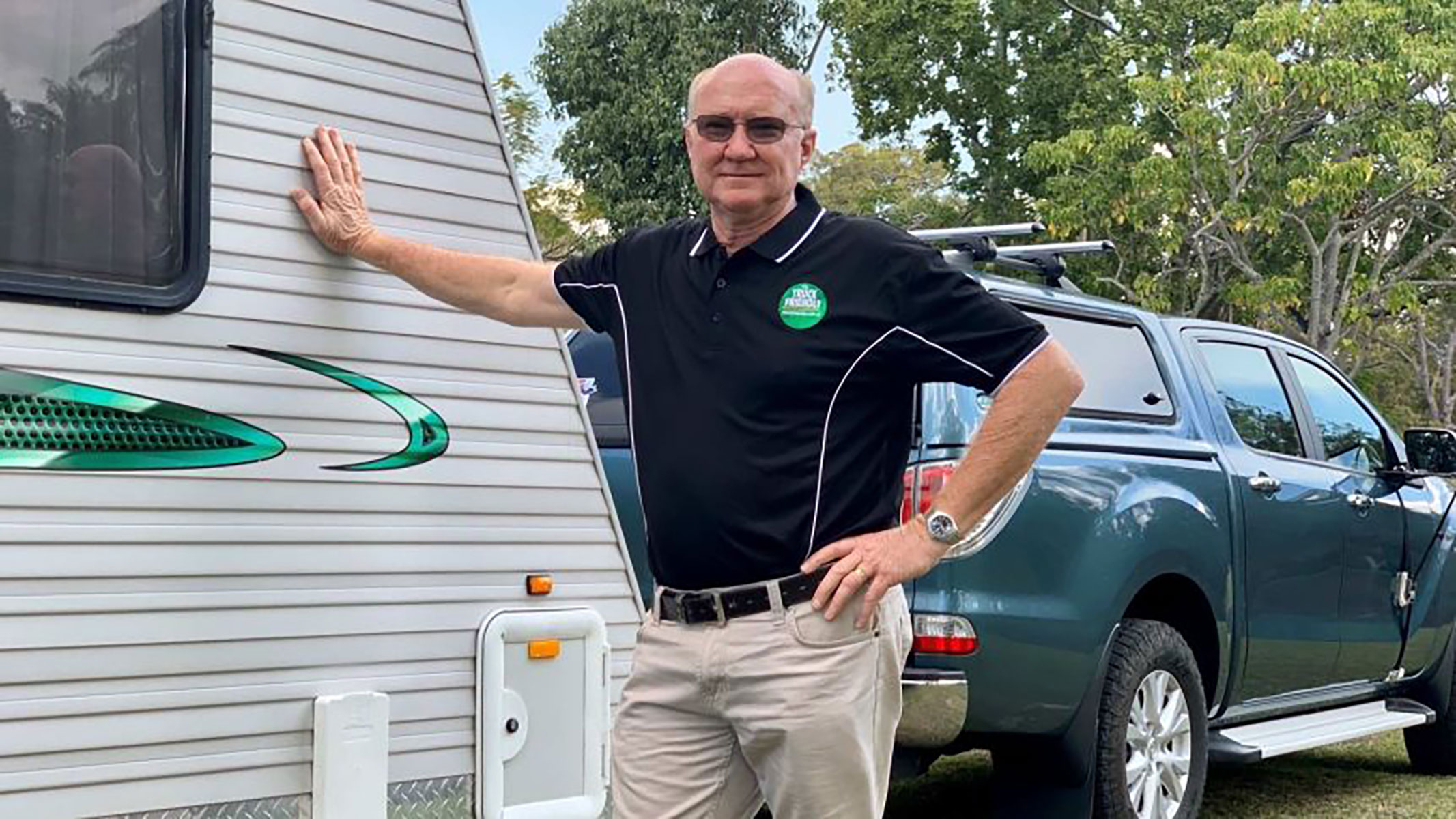
Ken and his wife Jenny were driving to Port Douglas from Bundaberg one year towing their caravan, when they noticed long lines of trucks and other vehicles being held up by slow-moving caravans and motorhomes who did not pull over nor assist others to pass.
“They often travelled in close convoy so no one could pass,” Ken said. “The chatter on the UHF was not complimentary and only fuelled the ‘us and them’ mentality that existed between the different road user groups. That is when we came up with the original ‘I’M TRUCK FRIENDLY’ sticker program.
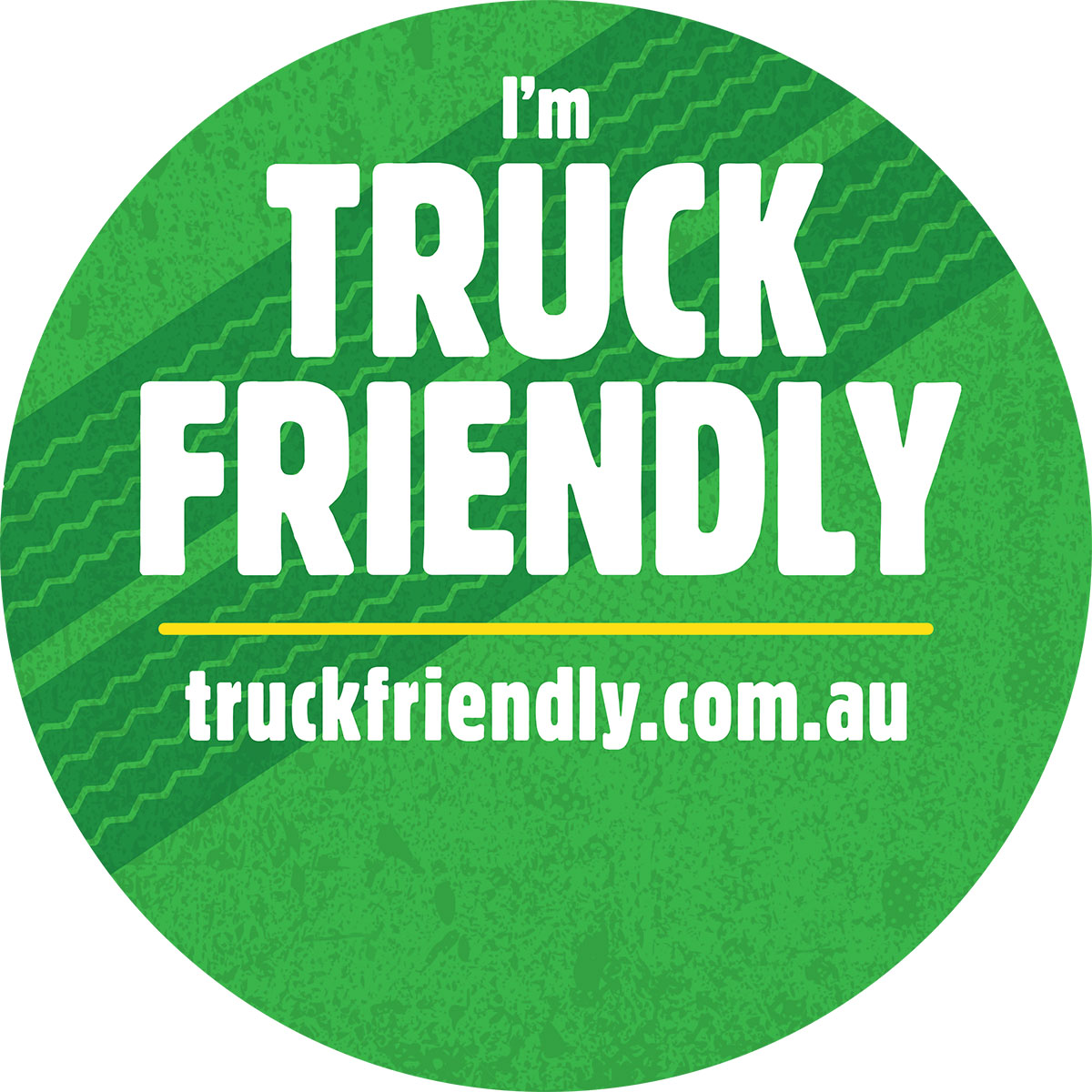
It is estimated that less than 10 per cent of the 750,000 RV users in Australia are members of any club.
To help fill the void in free education, Ken Wilson researched and wrote the Truck Friendly caravan road safety program over a three-year period and forwarded it to State and Federal Governments and all major caravan and trucking organisations and companies for support.
In 2016–2017 Truck Friendly was invited to be a new part of the award-winning ‘Stay on Track Outback’ (SOTO) caravan safety program run by the Queensland Police at Charleville, Queensland. Ken said in its first two years, SOTO helped reduce caravan accidents in the Charleville Police district by 50 per cent, proving that education works. However, due to funding delays and changes in police leadership, Ken decided to launch Truck Friendly as a standalone program.
He lobbied Governments, national and state caravan industry associations, heavy transport industry bodies and companies for support to help provide more education for caravan and RV owners. Frustrated with the lack of support and funding, the Wilsons launched the Truck Friendly Facebook page and website in June 2019 with the help of Bundaberg Regional Council, RV Lifestyle Village at Burnett Heads and Caravanning Queensland.
“As I researched more and more, I found so much false and misleading information on what should be respected websites and online videos. Much was also sales-based and not safety based. When I research, I use multiple reliable sources and then convert it to ‘caravan speak’ in a form easily understood and not too technical for my readers.”
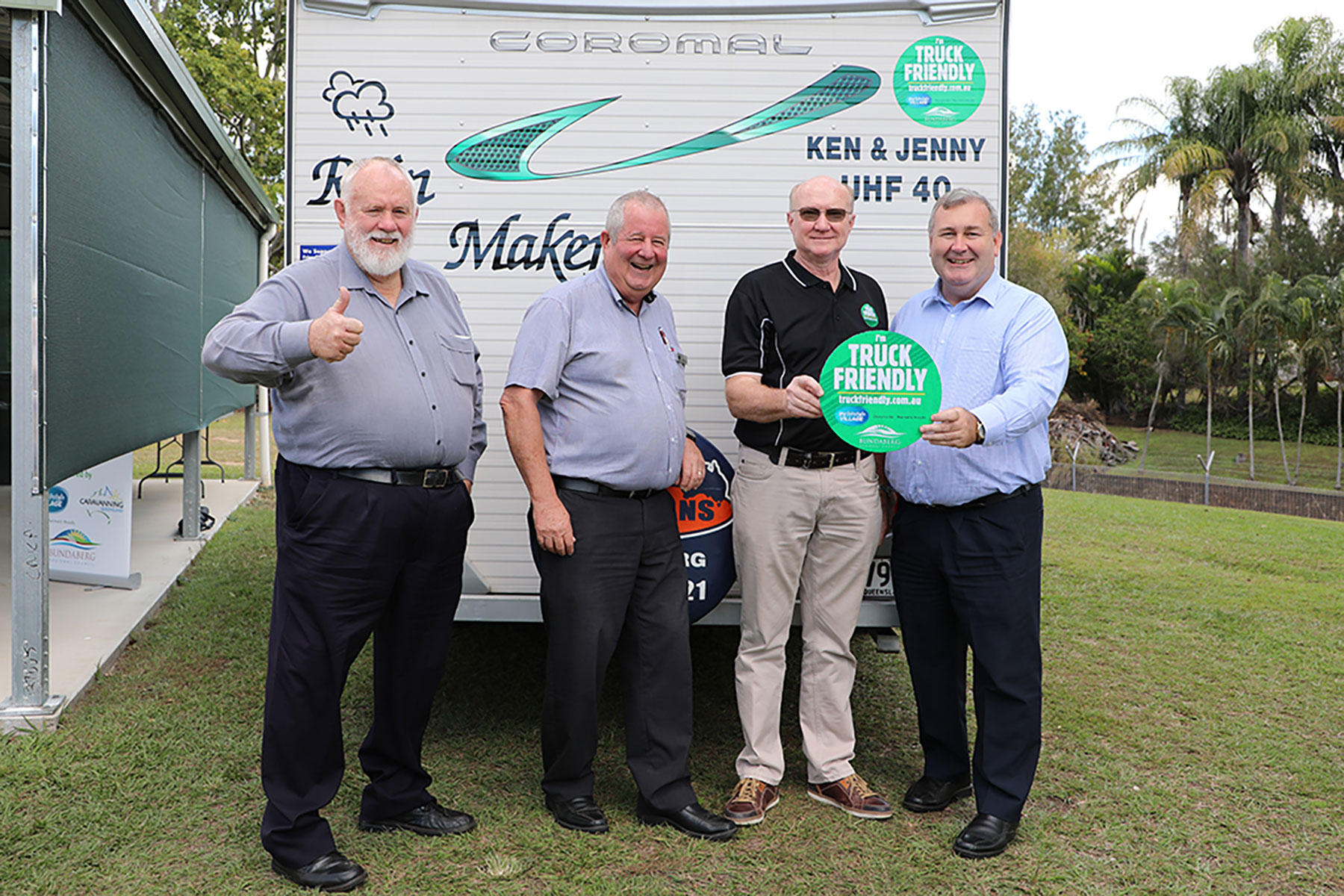
Fix the problem
Ken always advises his social media followers to be cautious of advice from someone who is trying to sell them something and recommends fixing the cause of any caravan problem, not the symptom.
His bugbear is the information put out by some industry associations about the use of weight distribution hitches on caravans. One website states “These weight distributing bars are necessary on all but the lightest camper trailers.”
“My intention is not to shame but point out serious concerns with the accuracy of some information,” he said.
He recommends that caravanners go back to basics and learn safe towing practices.
“If your caravan is swaying, why is it swaying? Is it loaded correctly with correct weight distribution, 10 per cent of the loaded van weight on the towball, tyre pressures correct and other causes. The towing companies still recover heaps of caravans that rolled over and had anti-sway technology fitted.
“I strongly recommend fitting these after-market accessories for the right reasons and if needed, but do not rely on them instead of basic safe towing practices.
“Don’t just fit a weight distribution hitch to your rig because the previous van owner used one. Your rig, loading and driving is completely different and unique to you and your vehicle.”
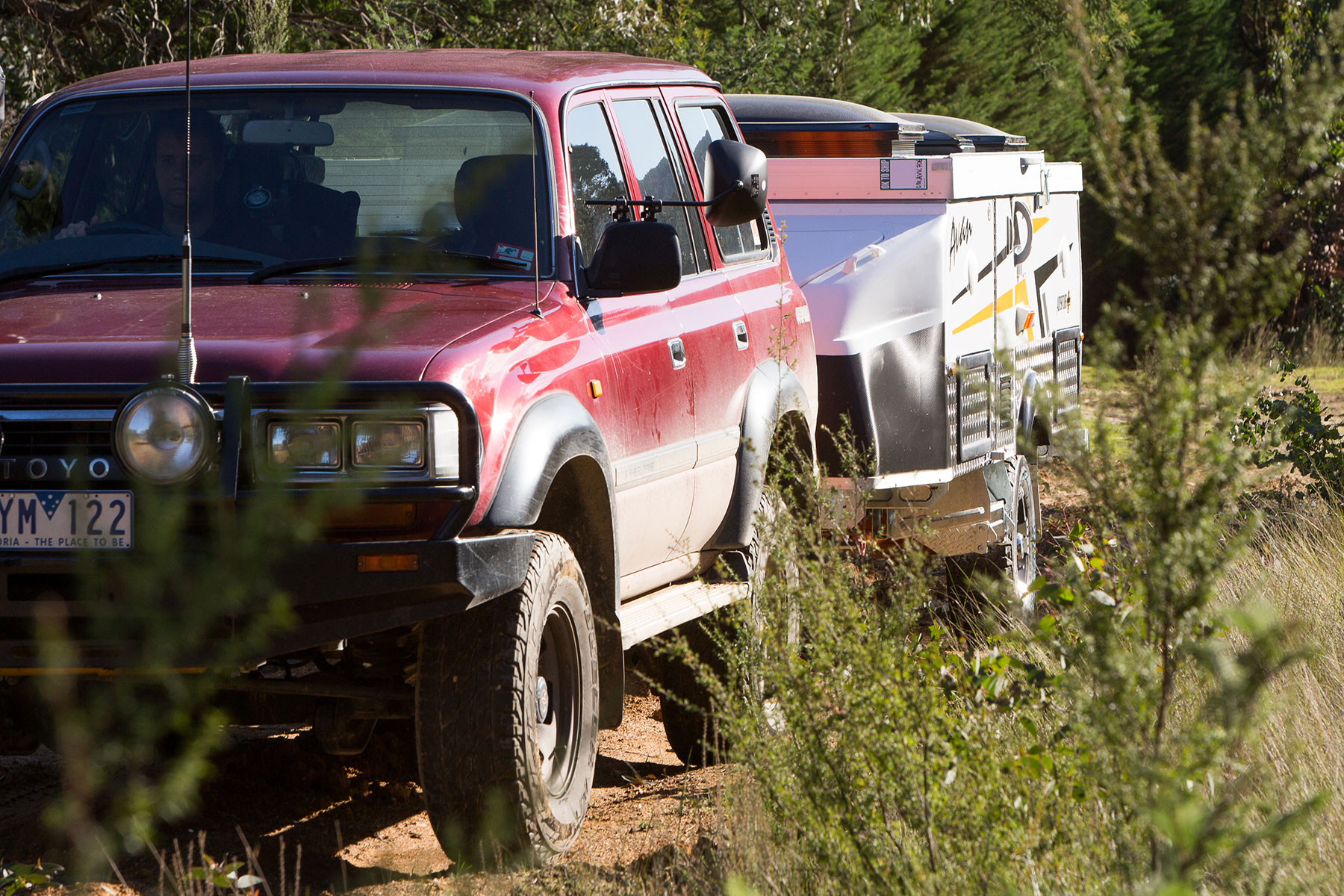
Five part program
There are essentially five parts to the Truck Friendly program.
First is the Facebook page which has 22,000 followers across 30 countries. Ken regularly posts articles on caravan safety articles in an easy-to-understand non-technical format. Posts also include general caravan safety advice on subjects such as loading, caravan and tow vehicle weights, the cause of and how to avoid caravan sway, interacting with trucks and how to find a place to pull off the road safely.
Second is the website almost entirely researched and written by Ken. It contains a full description of the Truck Friendly program, caravan safety information and driving guides which are recommendations on how caravanners and RV drivers can assist other road users including truck drivers, with advice on overtaking and being overtaken, use of the UHF radio, use of truck stops, 3-2-1- green reflectors, travelling in convoy and road manners to help avoid holding up traffic.
The third part is the caravan/RV sticker program. The free, 30cm round green ‘I’M TRUCK FRIENDLY’ stickers are available at locations throughout Australia and are designed to go on the rear of the caravan and RV so that other road users know that the driver has read the website driving guides, and knows how to help other drivers, wants to help other drivers and they have a UHF radio to communicate.
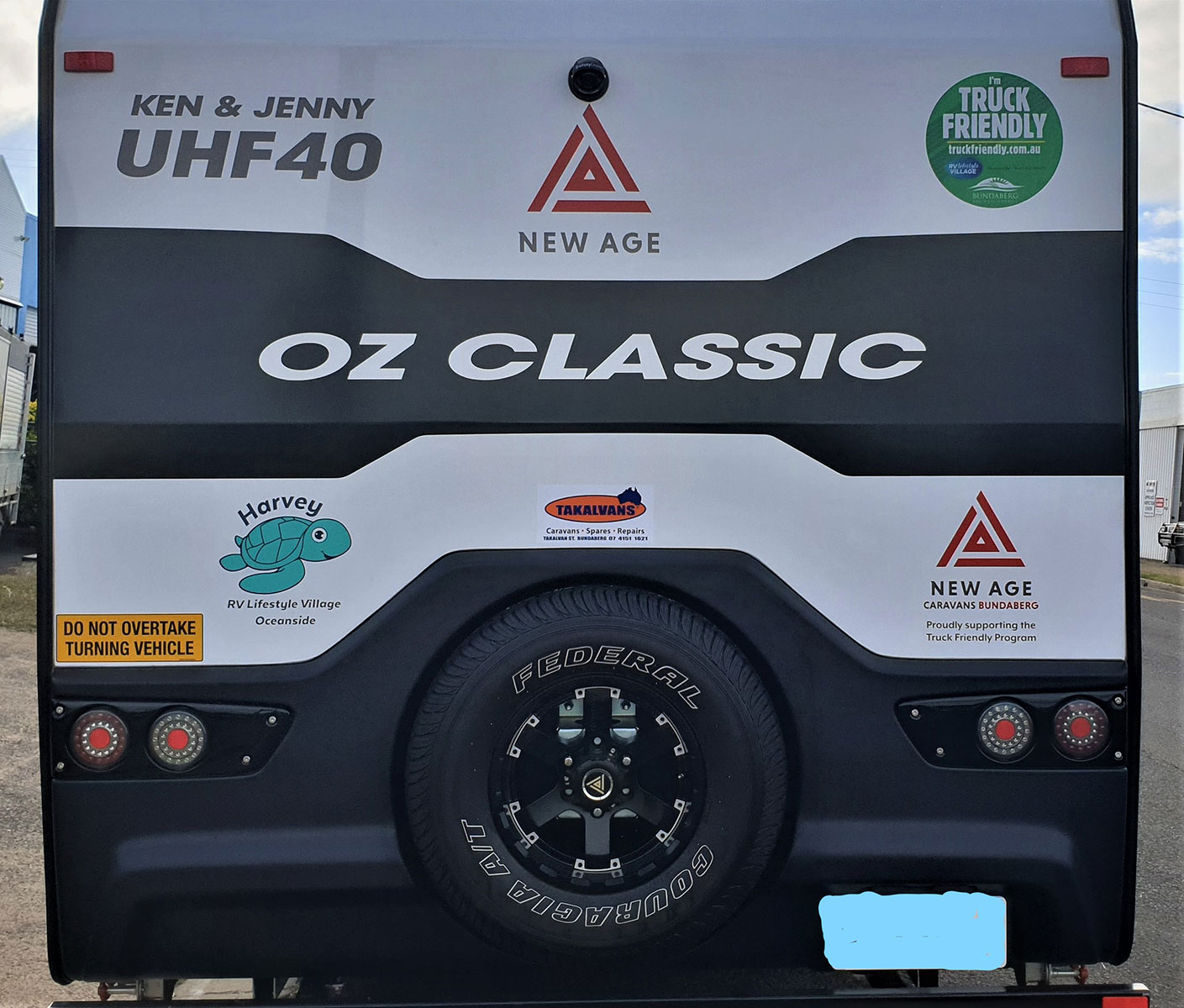
“Only drivers who qualify by having read the website, wanting to help other drivers, and have a UHF qualify for a free sticker,” said Ken. “No UHF — no sticker.” There is a list of more than 40 sticker collection points throughout Australia on the website and including tourist/visitor information centres, caravan dealerships and mechanics workshops. Smaller ‘I SUPPORT THE TRUCK FRIENDLY PROGRAM’ stickers are also available for cars, trucks and offices.
The fourth part of the program is a ‘How to be Truck Friendly’ brochure supported by Bundaberg Regional Council. They are distributed to all sticker collection points, at club rallies, some caravan parks and other locations including truck stops. The brochures are currently being redesigned and updated for a new print run.
The fifth part of the Truck Friendly program is its future. It has grown rapidly but has potential for further growth and education opportunities to help solve this huge problem. Ken says that caravanners are reluctant to pay for an expensive caravan towing course and would not attend a community hall to see a caravan safety presentation. Many caravanners are on a pension or have limited income and some also don’t believe they need any education.
Ken plans to take his word to the people by hosting free caravan road safety workshops in caravan parks, caravan club rallies and social gatherings in all areas of Australia over the next few years, in collaboration with the Australian Caravan Club Ltd (ACC). The workshops will be supported by communications campaigns and feature guest speakers from the local police and trucking and RV industries.
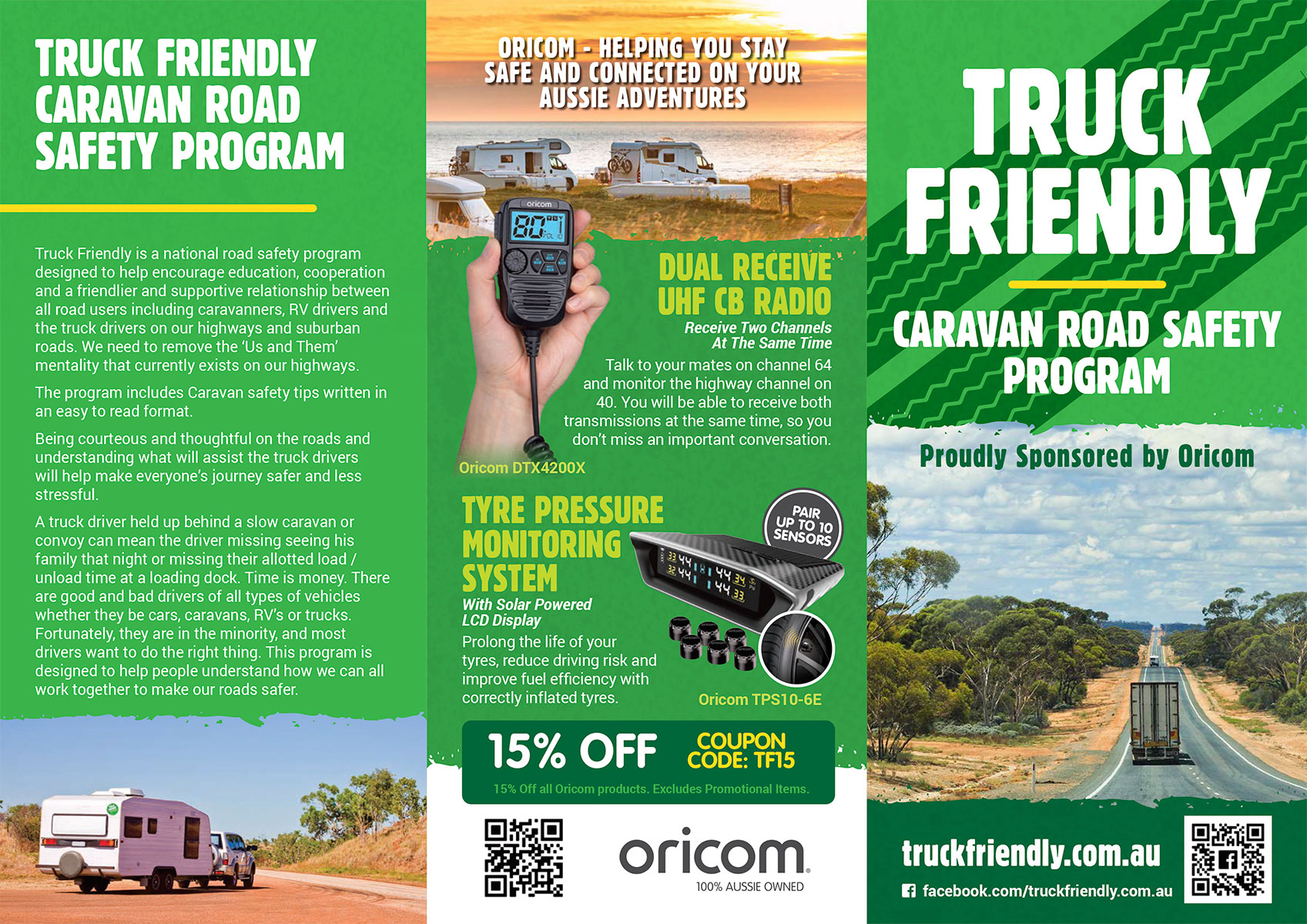
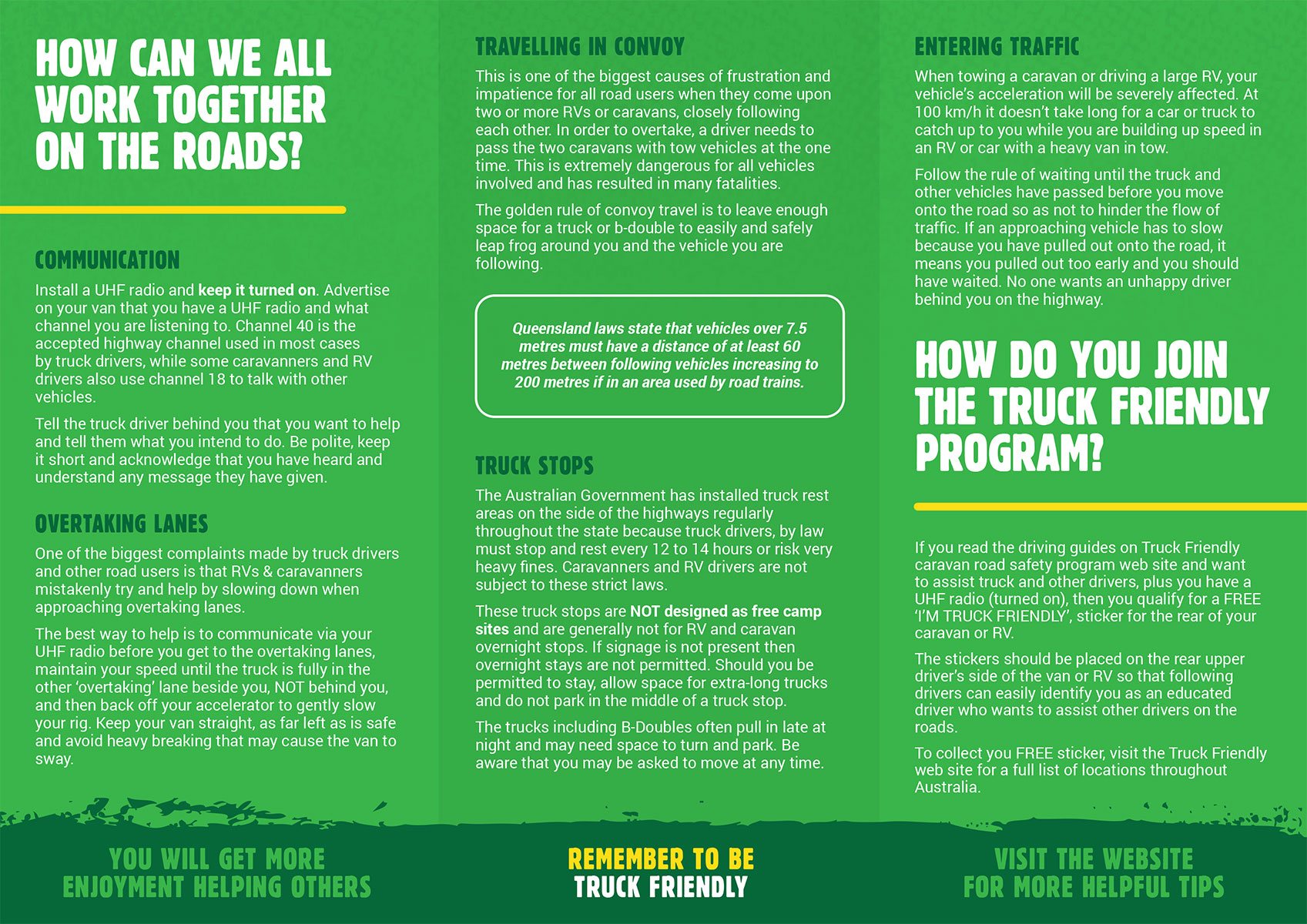
Funding support
Ken and Jenny Wilson currently fund the program from their own household budget in their spare time, while both still working full time. Truck Friendly has received generous in-kind printing support with stickers and brochure printing costs covered, but not other management or costs funding. The program now needs a full-time commitment as it has grown and continues to grow at a very fast pace since its launch.
As a partnership, Truck Friendly is not eligible for the majority of government funding opportunities and Ken would welcome some corporate sponsorship to assist with wages and expenses.
“Some sponsorship would enable us to expand the program and accept the many invitations that we receive from caravan and horse clubs, motorhome clubs, Qld and NSW Police and others all over Australia to present at their rallies, gatherings etc. It will also allow us to attend the many caravan expos at which we have been offered a complimentary site at to answer questions from caravanners and promote road safety direct to the drivers.”
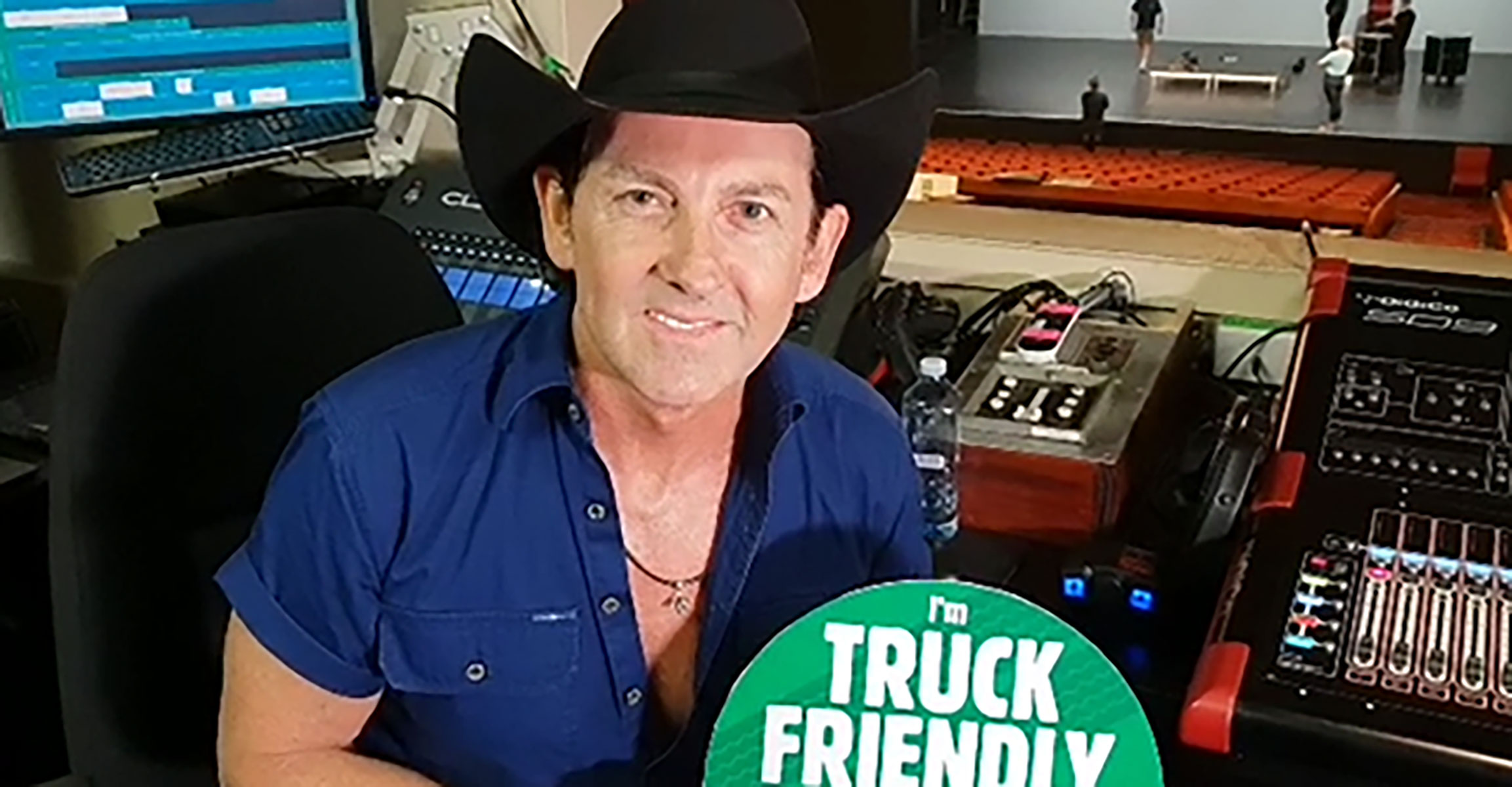 Country music singer, Lee Kernaghan, has been a major supporter of the program
Country music singer, Lee Kernaghan, has been a major supporter of the program
Getting the right advice
Ken believes the biggest issue facing those new and experienced in caravanning is getting the right advice for their individual caravan towing rig.
“Each is different to any other, and to take advice from someone on social media who has no information about, nor seen your fully loaded rig can be foolish,” Ken said. “Get your fully loaded caravan rig weighed by a professional mobile scales company who can weigh each wheel and the tow hitch to see where the weight really is. Don’t guess or assume, find out the facts.”
While social media can be a good educator, caravan owners need to sort fact from fiction and that can be the biggest problem.
Ken believes more education and responsibility need to be taken by those selling cars and caravans, with all caravans sold coming with a comprehensive weight certificate as delivered. “Too much false information is given by salespeople. I was told once by a car salesperson that kerb weight included driver and passengers.”
“Caravans are being sold with so many accessories fitted that they are illegal to drive on the roads. Some recently were reported as being sold new and had 450kg towball weights when only rated at 350kg.”
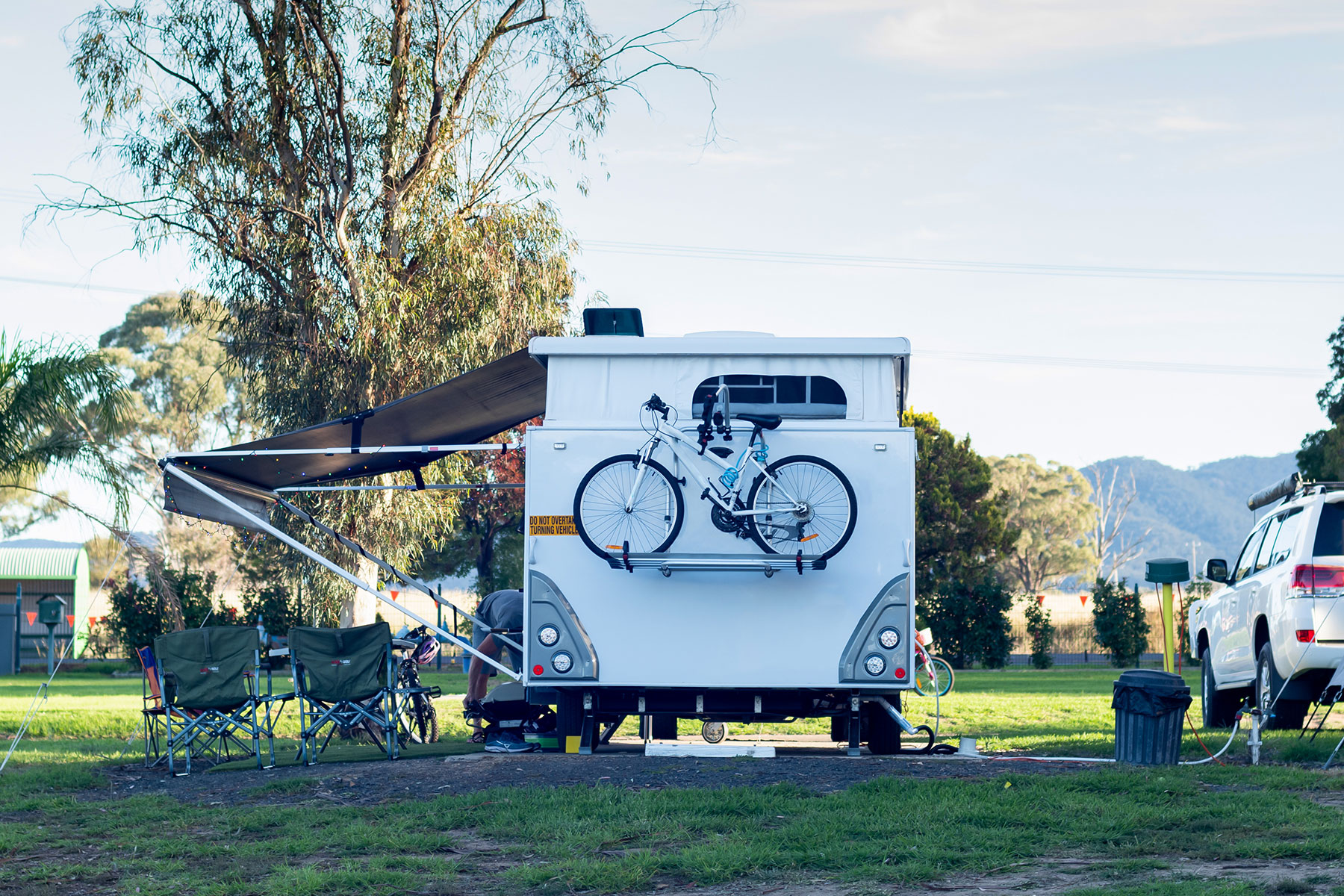
Ken also believes:
- Rear boxes and heavy items on the rear of a caravan or motorhome can be dangerous for weigh distribution and contribute to caravan sway and rollover. They also often breach Australian Design Overhang Rules and are illegal in many cases.
- The government needs to take action against advertisers showing new vehicles towing caravans without the legally required towing mirrors.
- We need universal state laws, including towing speeds. Both NSW and Western Australia restrict towing a caravan to 100km/h. NSW is vehicles above 4500kg GVM or GCM which includes the majority of caravans' rigs on the roads.
- Towing courses should be standardised throughout Australia and offered with caravan sales and to gain a discount off insurance, registration, motoring club memberships and caravan parks fees.
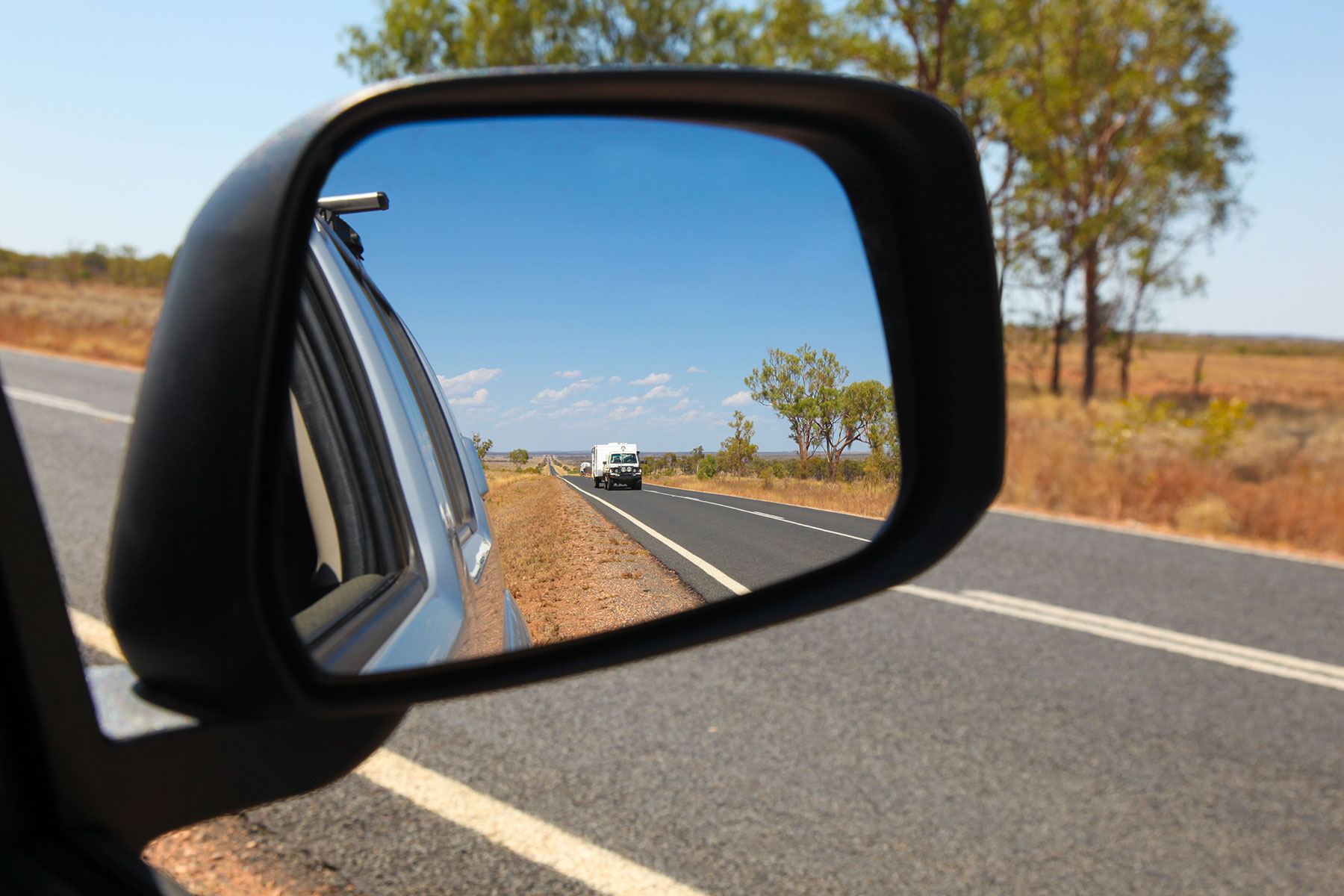
Ken's top tips
- Have your caravan and tow vehicle professionally weighed. You will have factual information that will assist setting the rig up for safe driving and it may help solve a multitude of future problems.
- Do not rely on after-market products to compensate for basic safe towing practices. Fix the problem not the symptom. The problem will still be there until fixed.
- Dangerous caravan sway can be caused by many things which are almost all within the control of the driver and includes correct load placement, tyre pressures, correct caravan set up and matching vehicles and, most importantly, speed.
- The chance of caravan sway is proportional to speed. The faster you drive, the higher the chances of it occurring, the higher the severity of the sway and the less the reaction time to correct it.
- WA and NSW have 100km/h maximum legal speeds for towing a caravan. (NSW is limited to vehicles over 4500kg GVM and GCM which includes almost all caravan rigs).
- Regularly adjust your trailer brakes for the speed and conditions. Around town, highway speed, wet and loose surfaces.
- Heavy vehicles take longer to stop and are slower to reach highway speed. Remember to allow for this.
- Don’t travel in close convoy. Allow room between all vehicles for faster vehicles and trucks to leapfrog around. Vehicles, including trailers over 7.5m, legally should not travel closer than 60m on the highways.
- Have and turn on a UHF to monitor channel 40. You won’t hear wide loads and trucks trying to contact you otherwise.
- Be aware of the effects of any medication and alcohol from that farewell party last night.
- Have the legally required towing mirrors fitted. You need to see ALL the way down the side of your van to the rear corner. A camera on the rear of the van DOES NOT qualify. Use your mirrors a minimum of every minute. Be constantly aware of any vehicles behind and possible intentions.
- Don’t hold up faster vehicles. No one wants an agitated driver behind who may do something stupid out of frustration. Regularly pull over to allow others to pass on narrow, busy, or winding roads with limited passing opportunities. It is better to pull over or have a break than have the stress of constantly looking at agitated drivers behind.
- Enjoy your safe driving and help others to enjoy their trip. You will feel better, and they will often thank you for your courtesy. You will feel less stressed and assist all to get to their destination safely.
- Follow the Truck Friendly Facebook page and read the website. Join the Truck Friendly sticker program to show you are a part of the solution and not part of the problem on our roads. Help others.
For Truck Friendly stickers, brochures or further information visit the Truck Friendly website and Facebook page.
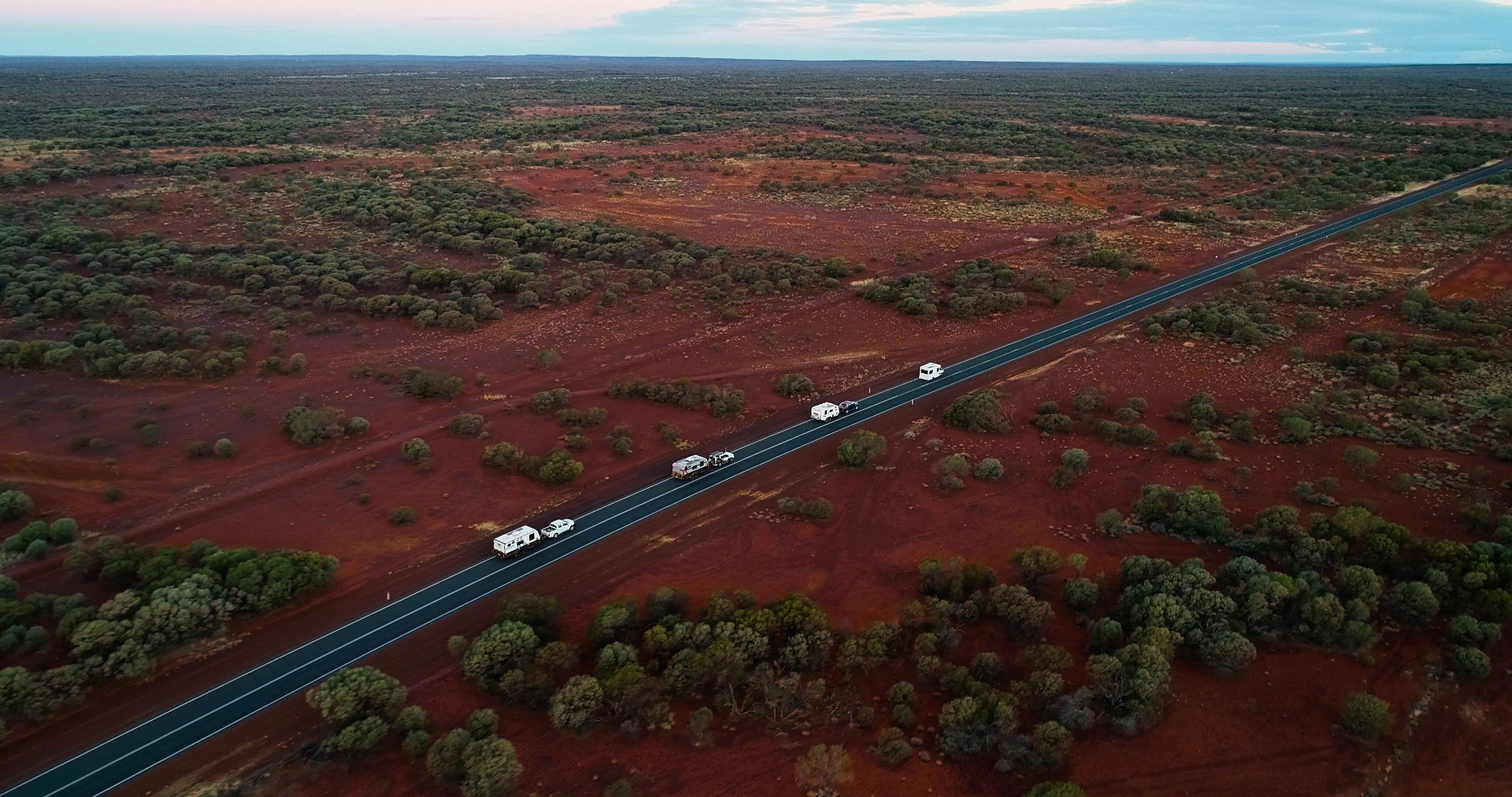
THE NEXT STEP
Are you ready to experience the freedom of the open road? Don't wait - Find your dream getaway now!
RELATED ARTICLES:
AL-KO Tow Assist - Towing Safety game changer




